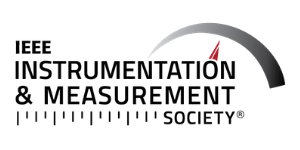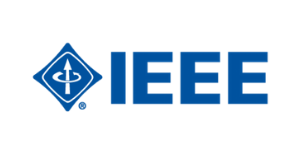Advanced measurement techniques and methodologies for the quantitative assessment of gait function in health and pathology
During the last decade, advances in technologies and methodologies have changed the perspective about measuring, capturing, and analysing human motion. Beyond acknowledged approaches for studying kinematics, dynamics, and electromyography carried out in the laboratory setting, more recent devices like wearables, inertial measurement units, ambient sensors, and cameras or depth sensors, have found massive adoption in such a domain. Thus, the synergy of classic instrumentation and novel smart devices have created unique capabilities in continuous monitoring of human motion in different fields, such as clinics, sports, and ergonomics. However, real-time sensing, signal processing, recognition, characterization and interpretation of motion metrics and behaviours from sensor data are challenging not only in laboratories, but particularly at home and in the communities.
This Special Issue is designed to comprehensively cover the open research issues related to the improvement of classic approaches and the development of more recent technologies and techniques in the domain of human motion, including Gait Analysis, in all the different fields of application (clinics, physiology, sports, ergonomics…), also encompassing different kinds of human-device interaction (such as prostheses or exoskeletons). Computational intelligence methods such as artificial neural networks have recently emerged as promising tools for the development and application of intelligent systems in human motion analysis. Thus, also contributions in this field are welcome.
This Special Session includes, but is not limited to, the following topics:
✓ Kinematics and dynamics in gait analysis
✓ Electromyography (EMG) in gait analysis
✓ Sensors for gait analysis
✓ Wearables an inertial measurement units (IMU) in gait analysis
✓ Artificial neural networks for gait analysis
✓ Gait analysis for neuromotor rehabilitation
✓ Walking with prostheses, exoskeletons and external supporting devices
Organizers
Wearable sensors in the era of remote and continuous monitoring of physiological and physical parameters
During the past years, the popularity of wearable sensors has continuously gained the interest of researchers because of the their ability to monitor and track the subject’s main parameters and their health/wellbeing status. Considering their low-cost, large diffusion and high acceptance, wearable sensors are more and more used in the life of everybody, from young subjects to elders.
Wearable sensors provide information on physiological parameters that, if appropriate analysed, have the capability to describe more general indicators such as changes in subject attitudes, physiological and mental variations, etc. This is possible combing artificial intelligence (AI) tools or other data analysis techniques on the measured data to provide precious information regarding the well-being and health subjects of users which could be hidden within the row data directly measured by the wearables.
Furthermore, wearable sensors can be part of multiple and more complex sensor networks to introduce continuous and remote monitoring of physiological and physical patterns, for example, to the measurement of Activities of Daily Living (ADLs) of aging people also outside the home environment.
In the last year, with the COVID-19 pandemic, the use of wearable sensors has shown great interest, particularly on fragile subjects, e.g. aging people living alone, depressed young people, etc. In this context, data from wearable sensors can be analysed to extract the implications of COVID-19 confinement and social distances on these fragile people.
This Special Session includes, but is not limited to, the following topics:
✓ Measurement methods using wearable devices.
✓ Measurement characteristics of wearable sensors.
✓ Data processing methods for wearable sensors.
✓ Continuous real-time analysis analysis with wearable sensors.
✓ Use of Artificial Intelligence in combination with wearable sensors for remote monitoring.
✓ Uncertainty evaluation on wearables device.
✓ Integrating wearables and medical sensors with networks infrastructures.
✓ Wearable sensor and medical applications.
✓ Energy harvesting in wearable devices.
✓ Secure connectivity in wearable devices.
✓ Intelligent and expert systems for wearable sensors, devices, or techniques
✓ Information fusion for wearable sensors, devices, or techniques
Organizers
Lorenzo Scalise
University Politecnica delle Marche, Department of Industrial Engineering and Mathematical Sciences
Sara Casaccia
University Politecnica delle Marche, Department of Industrial Engineering and Mathematical Sciences
From implantable devices to Smart Dust: solutions and challenges for a micro and nano scale precision and personalized medicine
The success and widespread adoption of implantable and wearable devices, nowadays well outside of the medicine field too, has been clearly enabled by technological advances in miniaturizing electronic circuits, systems, and biosensors. With the recent advances of standard CMOS technology, consolidating on a nanometer scale, and design and manufacturing of nanostructured biosensors and bio/CMOS interfaces, we believe that it is finally possible to design integrated CMOS biosensors at the sub-micrometer (or nanometer) scale.
Clear examples of this long-term vision have been the Neural Dust, Stim Dust, and Body Dust concepts. They opened the way for a new class of biomedical applications, such as: in-vivo or ex-vivo distributed monitoring and control of biological (neural) systems; in-situ targeted measuring metabolites or disease biomarkers, harmful bacteria or viruses in biological samples or substances; in-vivo and in-vitro locally monitor treatment effectiveness and pharmacokinetics. The key is to shift from an overall macro monitoring and diagnostic approach, where only the effects of underlying processes are captured as a whole or indirectly (e.g., by means of implantable/wearable devices), to a micro one, where biological and chemical processes are individually locally monitored (and eventually controlled). Common factor in these applications is the need of micro and nano scale, highly-integrated, autonomous smart systems and devices.
Motivated by all the above, this special session aims to address solutions and challenges in this emerging, and still wide open, multidisciplinary research field. It will present the most recent achievements and developments for designing, fabricating, integrating, validating Smart Dust devices and systems.
Particular topics of interest are (but not limited to):
- Nanobiosensors, bio/CMOS interfaces, NEMS/MEMS;
- CMOS circuits and systems for ultra-low-power biosignal acquisition and processing;
- Wireless combined data and power scalable network architectures for distributed miniaturized systems.
In addition, it will cover a broad range of related subjects, such as:
- Event-based/bio-inspired circuits and systems
- Biomedical cyber-physical systems
- Wireless power transmission and management
- Machine learning and data analysis for bridging the gap between micro-level monitoring and medical (macro-level) diagnosis
- System-level architectures, co-design methodologies for bioelectronics
- Biocompatibility, biosafety, lifecycle management of drinkable/injectable devices
Organizers
The measurement and assessment of well-being during the Covid-19 pandemic: Implications in neurosciences, psychology and psychiatry.
The pandemic has changed the way individuals pursue well-being and relate to and practise healthcare. The perception and awareness of health risks have been transformed, as has the attention to the health consequences of individual behaviour. Furthermore, Covid-19 has compelled people to delay health services, putting chronic and pre-existing illnesses in the background and referring to clinicians only for emergency conditions.
In the context of this pandemic, assessments in the fields of neuroscience, psychology and psychiatry are increasingly going to play a primary role. The measurements in these fields, even with remote modalities, might help health professionals to oversee, support and promote patients’ well-being and quality of life.
The aims of this special session are to carry out a discussion on the implications that these pandemic features may have on citizens’ health (in the short-, medium- and long-term), focusing on the assessments of well-being and quality of life. This session intends to highlight some ways to enhance and disseminate best practices for assessments in the clinical field, which might help to improve the effectiveness of interventions in healthcare.
This Special Session includes, but is not limited to, the following topics:
✓ Well-being and quality of life in the life span
✓ Assessment, measurement, psychometrics and testing
✓ Health attitudes and promotion
✓ Uncertainty, health risk awareness and management, decision-making
✓ Social and emotional dimensions in behaviour
✓ Attention and perception
Organizers
Eraldo Francesco Nicotra
University of Cagliari, Department of Pedagogy, Psychology, Philosophy
Giorgio Marchese
National Research Council of Italy, Institute of Translational Pharmacology, Secondary location of Cagliari (CNR-IFT-CA).
Maria Pietronilla Penna
University of Cagliari, Department of Pedagogy, Psychology, Philosophy


